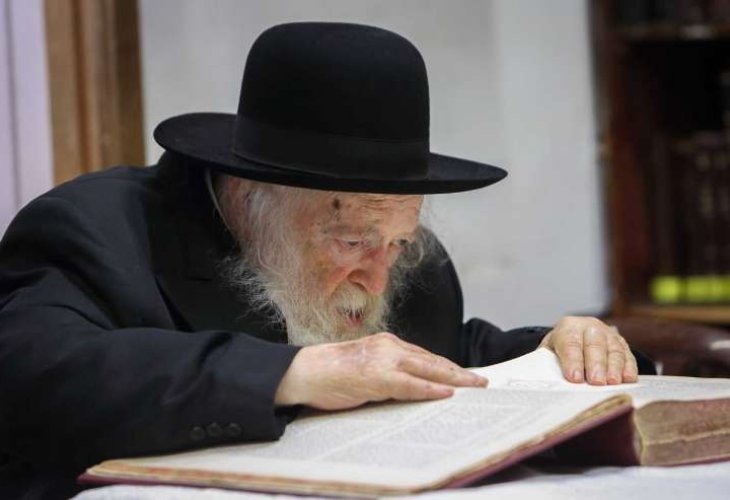Personal Stories
A Child’s Question—and the Great Rabbi Who Took It Seriously
When a child asked a simple Torah question, the Rabbi gave him something far greater than just an answer
 Rabbi Chaim Kanievsky (Photo: Flash 90)
Rabbi Chaim Kanievsky (Photo: Flash 90)Rabbi Chaim Kogel shared a memory from his childhood that left a deep impression on him and continues to guide him to this day. The story is about the great Torah scholar, Rabbi Chaim Kanievsky, and his incredible sensitivity—even toward the youngest of questioners.
“It happened about twenty years ago,” Rabbi Kogel recalls. “I was a seven-year-old boy in third grade, learning Torah with my chavruta (study partner) at the Lederman synagogue. We were studying Eilu Metziot, a section from the Gemara (Talmud) that discusses the laws of lost objects. We reached a part that explains how someone who finds a lost garment should air it out every month—for the benefit of its owner, not for personal use like hosting guests on it."
As young boys excited by their learning, they came up with what seemed to them like a brilliant question: What if, exactly on the day the garment needs to be aired out, guests come over? Could you fulfill the mitzvah (commandment) while also benefiting from it at the same time?
“We didn’t yet know,” Rabbi Kogel smiles, “that the very next line of the Gemara actually asks this exact question: ‘For its need and for his need—what is the law?’ But at that age, we were full of confidence and curiosity. We didn’t wait to read the next line—we were sure we had come up with something nobody else had thought of!”
Convinced that this “complex” question needed a truly great mind to answer, the boys made a bold decision. They left the synagogue and walked straight to the home of Rabbi Chaim Kanievsky, one of the greatest Torah leaders of the generation.
When they knocked, Rebbetzin Kanievsky opened the door with a warm smile. Hearing they had a Torah question, she welcomed them in and led them to the Rabbi’s study.
Rabbi Chaim greeted them kindly, his face shining with warmth. The boys presented their question—and what happened next left them in awe.
“His expression turned serious,” Rabbi Kogel describes. “His face flushed. His veins stood out. It looked like the gates of Gehinnom (a spiritual place of judgment) had opened in front of him. He lowered his head in deep thought, furrowing his brow with intense concentration.”
After a full minute of silence, Rabbi Kanievsky lifted his head and quietly answered, “It’s probably permitted…” His voice was hesitant, as if he wasn’t fully sure.
“We walked out feeling like geniuses,” Rabbi Kogel remembers. “If a man like Rabbi Kanievsky had to think so hard about our question—and still wasn’t sure—we must have been brilliant!”
But when the boys returned to the beit midrash (study hall) and read one more line in the Gemara, their excitement faded. The Talmud had already asked and answered their question! Their brilliant idea had already been covered centuries ago.
It was then that they understood something even deeper than the Talmud’s answer.
Rabbi Kanievsky hadn’t been puzzled by their question. What had truly troubled him was the fear that these two little boys—so proud of their Torah learning—might feel embarrassed if they realized their question was already answered. He feared that a Jewish child’s heart might be hurt. That they might feel their sincere effort was dismissed. And that, to him, was unthinkable.
In that moment, the Rabbi had experienced the fear of “malbin pnei chaveiro”—shaming someone in public, even unintentionally. According to Jewish tradition, this is seen as something extremely serious—so much so that it’s compared to shedding blood.
So instead of gently telling them the answer was in the very next line, he chose to honor them. He thought deeply, acted as though the question required great wisdom, and responded with care. Through that, he preserved their dignity and encouraged their love of Torah.
“I never forgot what he taught me that day,” Rabbi Kogel concludes. “It was a lesson not just in Torah learning—but in how to treat others. Especially children. With deep respect, patience, and heart.”
This beautiful story reminds us: Greatness in Torah is not only in how much you know, but in how you treat each soul you meet.
Courtesy of Dirshu

